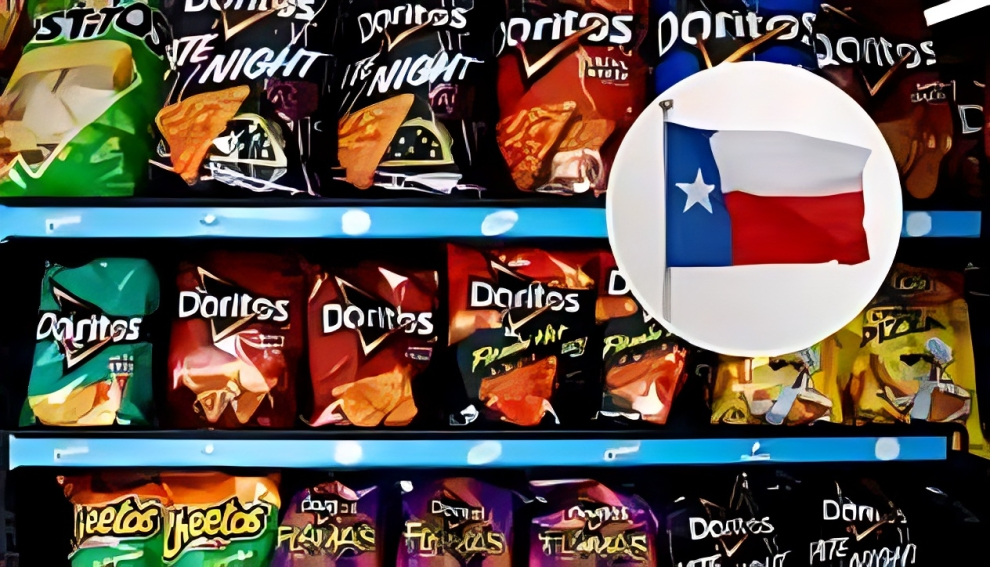In a landmark move that could reshape America’s food industry, Texas Governor Greg Abbott has signed Senate Bill 25 into law, requiring warning labels on packaged foods containing certain synthetic additives. The law, signed on Sunday, is a major victory for Robert F. Kennedy Jr. and his “Make America Healthy Again” initiative, which aims to purge harmful additives from the American food supply.
Under the new law, by 2027, any packaged food sold in Texas that contains over 40 specified synthetic ingredients — including synthetic dyes, emulsifiers, and bleached flour — must either reformulate or bear a warning label stating the product contains ingredients “not recommended for human consumption” in other countries.
Why This Law Matters
With over 31 million residents, Texas is the second-largest state in the U.S., and state-level regulations often push national reforms as companies prefer uniform production strategies across markets. This means the ripple effects of Texas’ move could soon be felt in grocery stores across the country.
Many of the targeted ingredients — like BHT (a preservative), titanium dioxide (used in candy coatings), and DATEM (an emulsifier) — have already been restricted or banned in Europe and other nations due to concerns over potential health risks, including:
- Hyperactivity in children
- Obesity
- Diabetes
- Potential carcinogenic effects
While the U.S. Food and Drug Administration (FDA) has maintained that these additives are safe, growing public pressure and international comparisons have spurred action at the state level.
Which Popular Foods Are Affected?
If companies fail to reformulate by 2027, warning labels will be required on a long list of American favorites, including:

- M&Ms (Mars Inc.)
- Skittles (Mars Inc.)
- Fanta (Coca-Cola Co.)
- Cheetos Crunchy & Nacho Cheese Doritos (PepsiCo Inc.)
- Frosted Strawberry Pop-Tarts (Kellanova)
- Cinnamon Toast Crunch (General Mills)
Some companies are already moving proactively:
- Kraft Heinz and General Mills have announced plans to remove synthetic dyes from their products by 2027.
- Industry insiders predict others will follow suit to avoid being singled out with “unsafe for human consumption” labels.
Timeline and Implementation
Here’s how the implementation works:
| Date | Requirement |
|---|---|
| Jan 1, 2027 | Applies to any newly copyrighted packaging |
| By 2027 End | Companies expected to reformulate or add labels |
However, gray areas remain, including:
- Whether labels apply only on new or redesigned packaging
- How federal vs. state labeling rules will interact
- Potential delays due to lawsuits
Legal Battle on the Horizon
The packaged-food industry is gearing up for legal challenges, arguing that:
- The law violates First Amendment rights by compelling companies to issue what they consider misleading warnings
- The reliance on foreign regulations for U.S. food policy is unconstitutional
- Texas is overstepping regulatory authority traditionally reserved for the FDA and USDA
Legal experts expect significant litigation before the 2027 deadline:
“I don’t expect that to be the end of the debate here,” said Smitha Stansbury, partner at King & Spalding’s FDA practice.
“There’s precedent for food companies to challenge this law under First Amendment grounds,” added Seth Mailhot, FDA specialist at Husch Blackwell.
🇺🇸 State Law vs. Federal Regulations
One key escape route for food manufacturers is potential federal action. If:
- FDA or USDA officially deems the listed ingredients safe after September 1, 2025, the warning labels may not be required.
- If the federal government mandates ultra-processed food warnings, that could override the Texas law entirely.
So far, however, no formal agreement exists at the federal level, leaving Texas’ law to stand as of now.
The Bigger Picture: Shift Toward Cleaner Food?
The Texas legislation reflects a broader consumer health movement gaining momentum across the U.S.:
- Growing awareness of ultra-processed foods and their health risks
- Parents becoming more cautious about food additives linked to ADHD or obesity
- Activists pushing companies to match European standards
If companies bow to public pressure and reformulate voluntarily, national food quality may improve, regardless of legal challenges.

